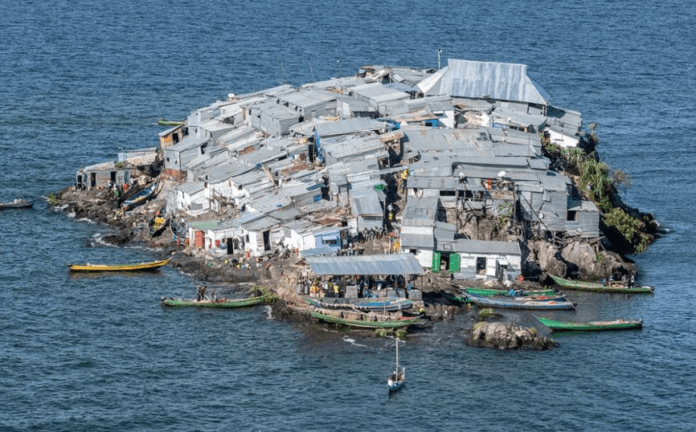By KNA
The less-than-two-acre Migingo Island, located in Nyatike within Migori County, remains a significant asset to both Kenya and Uganda due to its rich fishing grounds and strategic location. However, persistent harassment of Kenyan fishermen and residents by Ugandan security agencies has continued to fuel tension.
A group of residents and workers on the island has petitioned President William Ruto to address the ongoing crisis.
In a petition dated January 2, the group called on the government to release the findings of a 2009 joint survey tasked with affirming the Kenya-Uganda boundary in Lake Victoria. The report, they argue, could end the long-standing territorial dispute.
Dan Alila, a former special counsel at the Africa Human Rights Bureau, submitted the petition on behalf of Migingo Island residents. He emphasized that the lack of resolution has subjected Kenyans to what he described as “slavery” under Ugandan forces since 2004.
The 2009 joint technical survey by Kenya and Uganda aimed to demarcate the Lake Victoria border using colonial-era documents, including the Kenya Colony and Protectorate (Boundaries) Order in Council of 1926 and the Ugandan Constitution.
However, the exercise stalled in July 2009 after the two teams disagreed on technical aspects. The Kenyan team concluded that Migingo Island lies 510 meters inside Kenyan territory. Despite this finding, the report has never been made public.
Alila highlighted that the lack of clarity has allowed Ugandan forces to continue illegal arrests, impose exorbitant fines, and confiscate fishing gear from Kenyan fishermen. Some victims of these actions are now living in deplorable conditions, with many unable to resume their livelihoods.
For nearly two decades, Kenyans living on Migingo and in the Lake Basin region have endured continuous suffering. Alila stressed that this issue violates Kenya’s territorial sovereignty, as Migingo Island was never considered “terra nullius” (nobody’s land) and has always been within Kenyan jurisdiction according to colonial-era boundaries.
The petitioners are urging the government to make the 2009 report public, citing the state’s constitutional obligation to resolve the matter. While diplomatic efforts to settle the dispute have been made, they have yielded little progress, leaving Migingo as a potential flashpoint for conflict within East Africa.
Alila called on leaders from the Lake Region Economic Bloc and national government officials to visit Migingo Island and assess the socio-economic challenges faced by the community.
In 2018, Siaya Governor James Orengo, then a senator, proposed taking the Migingo Island case to the International Court of Justice (ICJ). Orengo argued that escalating harassment of Kenyan fishermen by Ugandan soldiers warranted legal intervention at the international level.
“The situation is getting out of hand, and we cannot allow our people to continue suffering in their own country,” Orengo stated at the time.
As the Migingo Island conflict remains unresolved, it poses a persistent threat to regional peace and security. The petitioners are now hoping for decisive action from President Ruto’s administration to end their plight.





![SHA Suspends Dozens of Health Facilities Over Alleged Fraud [LIST]](https://citymirror.ke/wp-content/uploads/2024/12/image-14-218x150.png)

